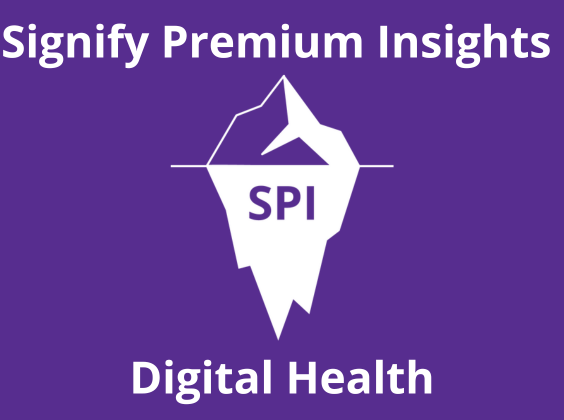
Written by

- Late last week, the CEO of GE Healthcare announced a plan to invest $500M in the division.
- Investment will take place over the next 3 years.
- It will be used to recruit 5,000 software engineers, data analysts and imaging analysts.
- Some funding may also be used to fuel acquisition of data analytics firm(s).
- Focus to develop Health Cloud platform (announced November 2015) and hundreds of clinical software applications.
- Platform will be driven by GE’s Predix operating system.
- Germany highlighted as a key target market for GE.
The recent announcement from GE Healthcare on plans to invest $500M on 5,000 software engineers and potential acquisition of a software analytics firm is no great surprise but excellent PR. The firm announced in late 2015 their “Health Cloud” platform to great fanfare, but little progress has been evident to date. However, GE has been making it very clear publicly that it plans to transition the industrial conglomerate into a “digital” firm, fueled by its Predix industrial platform.
Here’s the Signify View on the announcement:
Battle Lines Drawn
The size and scale of the announcement is significant for GE Healthcare, one of the leading global healthtech firms with $18.4B of revenue in 2016. However, it is by no means the biggest move in healthcare of late.
IBM’s entry into the healthcare field, investing over $4B in Merge Healthcare ($1B) Truven Analytics ($2.6B), Explorys and Phytel (not disclosed, but estimated to exceed $400M) has been very aggressive, not to mention the serious investment IBM has made in recruiting healthcare leadership and marketing spend for its IBM Watson Health business.
Other major competitors are also making big moves. Siemens plans to take its newly branded “Healthineers” division through an IPO later this year, while Philips has re-focused the company on health and wellbeing markets, having divested its lighting division, Philips Lighting, in 2016. Other global technology giants have also been lining up the healthcare sector; Google (Deepmind), Amazon, Salesforce and NTT Data have also made a big push for healthcare market share. Therefore, GE was always going to need to invest heavily to compete.
Digital Deutschland?
The orchestrated announcement was made to a German media outlet (Handsblatt), for good reason. GE has for some time been lining up the German market. While aiming for Europe’s largest market may seem a sensible move, it will not be straightforward, especially when it comes to Healthcare IT:
- Germany is one of the most price sensitive markets for healthcare technology in Europe; procurement prices are regularly 30-50% lower than the Western European average
- The health IT market in Germany is highly fragmented. In Imaging IT alone there are approximately 30 local vendors and integrators working with a complex and fragmented provider network, especially in the private and administrative sectors
- There has been little if any national or regional co-ordination of health IT in Germany to date. While the market is therefore under-penetrated for Health IT in relation to European peers, consolidation of the market to larger, more profitable enterprise networks will be challenging, bureaucratic and long-winded
In Germany, GE Healthcare does have considerable experience and past success in health IT with smaller ambulatory practice management software. This will certainly help in catering for the market, as will a sizeable installed base of imaging and clinical care hardware in Germany and surrounding markets. That said, attaining a commanding share of the multi-billion dollar German healthtech market could be far from straightforward against a mix of large incumbent multinationals (Siemens, AGFA Healthcare) and a multitude of small private vendors. Add to this economic concern and political uncertainty over the future of the European Union and GE’s strategy looks increasingly risky.
ACE Platform or Bust
GE is also not alone in its bid to position itself as a central platform provider. Philips, Siemens, NTT Data and IBM are all making a similar play. The move from these vendors is hardly surprising – enterprise EHR vendors have done little to establish any real expertise in best-of-breed clinical IT or imaging IT software to date.
For GE Healthcare, Philips Healthcare and Siemens Healthineers, leveraging their clinical expertise and modality hardware footprint to expand the breadth of their clinical IT offerings, including analytics, dashboarding, integrated workflow and even population health and telehealth capability, is a natural progression. These new solutions, that Signify Research has termed Agnostic Clinical Enterprise (ACE) platforms, look set to be the foundation for future cross-discipline implementations. In adopting the ACE platform model, there are many benefits for providers and vendors alike. The single ACE platform model allows the vendor to become embedded in the provider’s core clinical workflow and care management, while also putting themselves in prime position to win long-term, managed service deals, including imaging hardware, clinical care device supply and lucrative professional services.
For providers, the ACE platform model offers a single vendor to deal with for clinical IT (“one-throat-to-choke”) and a partner to share the risk of previously capital-intensive procurement. Moreover, the ACE platform model will, over time, use the core platform vendor as a contractor. If the provider wants to bring in a new technology or software for a specific clinical function, the ACE platform vendor will have responsibility to sub-contract and integrate the new module into their platform. This will lead to greater choice for the provider in each clinical discipline.
With its competitors also making significant moves to establish ACE platforms and aggressive investment from IT and analytics industry giants, GE’s recent announcement really only offers one question: will $500m be enough?
New Service from Signify Research: Clinical Content Management IT – 2017
This and other issues will be explored in full in Signify Research’s upcoming intelligence service ‚ÄòClinical Content Management IT – World‘, with first delieverable due in April 2017. For further details please click here or contact steve.holloway@signifyresearch.net
